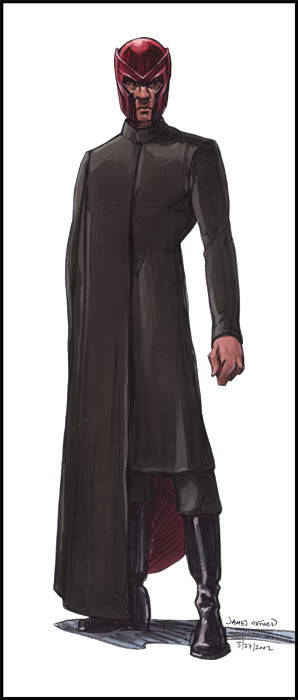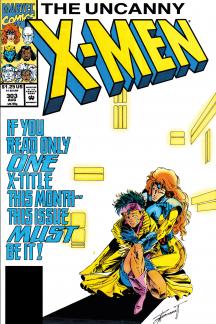10 things you didn't know about comics 1) The market is tiny. I heard the VP of DC himself estimate the comic-buying public at 200,000 people. 2) That tiny market is privileged white boys. An independent publisher once told me that they were very proud of how much their audience skewed female - 15%, more than any other indie. Their covers look like this: 3) The tiny market, despite being tiny, is seen as a harbinger. The average audience of a comic book movie (any comic book movie) is over 25 million people in the US alone. 4) "shades of green" are never going to be an issue because there are no green minorities. "Shades of brown" will always be an issue because HOLY FUCK people lose their shit. Is this because comic fans are racist? Prrrrrobably. But they don't know they're racist and minor revisions to minor characters are not the place to confront them about it. 5) The pen'n'ink guy is literally the lowest of the low on the totem pole. They're fundamentally denied creativity. 6) "This one time I did some pages" means you're a temp, filling in and you're allowed even less of an opinion. 7) "I've been told that" means that there are other people who also have an opinion who probably aren't temps doing "some pages." 8) It was let stand because nobody wants it to be a thing but if you make something a thing you likely aren't going to get invited back because the big comics outfits run exactly like the big studio outfits. I have this on the authority of two good friends who switch hit between the two. 9) There is no aspect of anyone's anatomy or physiology in any corner of any superhero comic anywhere on the planet that has anything to do with anyone who is actually on the planet. 10) This is why the good stuff has been outside of the superhero genre forever. 


This is a fascinating story, perfectly told in the cartoon medium. (See comments to taco elsewhere in this thread.) This incident likely caught his attention because he had never been asked to change a character's shade. If she had said, "The villains are too white. Could you make them darker?" I imagine he would have noticed that too, and yes, it would be equally racist.is this racist? and I know that if I'm asking that question, the answer is probably "yes."
it certainly deserves asking. I think, also, the editor may be identifying perhaps unconsciously with Melita, Wolverine's X-girlfriend. It would be easier for her to project herself into the character if Melita were lighter. As a male artist, Ronald Wimberly might not be aware of that possibility.
Oooorrrr.... they simply have a problem with the art itself, and expect the shades to be darker/lighter depending on context. It's not necessarily a racial thing. Alternatively, they might see it as not a big issue and have the "must edit something" urge that many bosses/editors get.If she had said, "The villains are too white. Could you make them darker?" I imagine he would have noticed that too, and yes, it would be equally racist.
Kafke, thanks for your comment (here and above). I considered the possibility that it was just the art. The editor would insist every time that it was an art issue, not a socio-politico-ethnico issue. Or an editor might say, I don't care if it's racist, we are speaking to a particular audience, as kb points out above.they simply have a problem with the art itself, and expect the shades to be darker/lighter depending on context. It's not necessarily a racial thing.
ummmm.... romantic context - whiter? crime context - darker? The editor's "problem" with the art itself could be that the depiction of the character didn't fit her preconceived stereotype or didn't fit the story she thought was being told. The artist saw the story from his point of view. The editor saw it differently. It's a racial thing, but I could be wrong. kleinbl00 eightbitsamurai
I really don't see the issue with this if it is indeed the case. Free speech is free speech. If you want to push out racist content (because it sells), then so what? If there is an actual problem with racism, I could understand. But this is literally a matter of "the character isn't as dark skinned as the artist would like". No. Bright lights, certain colored lights, etc. Along with being in shadows, having things color-shifted for effect (the whole scene, not just the character). And so on. If a character needs to be lighter, they need to be lighter. If a character needs to be darker, they need to be darker. It's purely a shading/color thing. Or it could be a simple matter of "making a slightly lighter tone for the skin blends well with the rest of the colors on the page, leading to more sales". With a darker skinned character needing the rest of the page to be edited to blend nicely. Is hubski racist because the background is white and green (for my theme)? No. But if the background was black, he overall theme wouldn't work as well, from purely a colors/contrast standpoint. And I'm fairly certain with other colors this happens to. I didn't see it as a racial thing in the slightest. I saw it as "these colors are inaccurate and don't blend well, please brighten them up". Unless, of course, this was a book wide change (every single panel/page), along with future changes to the character being made permanent (that particular skin tone change, rather than just the blending on a few pages). Again, it might be a racial issue. Sure. But if it is, first, who cares? It's media. Fiction. And second, if it's what sells, it's what sells. I'm pretty sure "Politically Correct Human" isn't a top seller. Either way, like most racial/gender things, it's a non-issue that's blown out of proportion for media coverage. Or an editor might say, I don't care if it's racist, we are speaking to a particular audience, as kb points out above.
ummmm.... romantic context - whiter? crime context - darker
The editor's "problem" with the art itself could be that the depiction of the character didn't fit her preconceived stereotype
The artist saw the story from his point of view. The editor saw it differently. It's a racial thing, but I could be wrong.
Kafke has a point. I'm not the only professional I know that leaves little unfinished nuggets in my "finished" work so that the overzealous producer can point at something and tell me to fix it. It's a rare creative overseer that can say "yep, you nailed it, invoice me" without insisting you tweak something. At the same time, a non-clueless supervisor looking for make-work would look anywhere other than "how brown is Wolverine's girlfriend." BUT cluelessness happens. Here's the shitty thing: Calling out cluelessness as racism (or calling out racism as racism) in a public forum like this will not diminish the cluelessness or racism. It will make the caller-out-of-racism radioactive to the point where not only will he or she never been hired again, it will taint the relationship between the supervisor and whoever recommended the caller-out-of-racism. Given a choice between "I want to be a better person" and "I don't have time to deal with this shit" "don't have time" will always win. You are the master of your own destiny in a gig economy. Cartoons like this will ensure that you have a much higher profile amongst minority artists, minority-friendly companies and egalitarian-minded publishers. I'm sure they exist somewhere.
Right. I don't mean to belittle racism (it's certainly an issue), but in many cases it's not the reason behind certain actions/manners of speech. It seems people want to nitpick at things that really aren't an issue. And even if the editor is racist, so what? They are still employing the guy. And they are certainly free to speak how they like and publish content that they like. It's the same as trying to nitpick at some other detail. Who cares? Provided real issues are resolved, who gives 2 shits what a comic book portrays?
I wish it were more of an essay. I get what he's doing but I would have appreciated more detail. I love comics and I defended reddit to a degree on here not too long ago because I kinda liked their comics sections but the online comic community is pretty awful and I was wrong (I just like it when people get my weird jokes, sorry). I couldn't encapsulate it easily and it's too late for me to try. Just imagine Tumblr and Twitter manufacturing controversy every two months about race and gender. It makes me want to abandon comics. This guy could say a lot more with an essay. The problem extends beyond the internet people.
I don't know taco. If you are an artist, chances are you'd want to tell your story about shades of colour in pictures. If you're a poet, you'd be better able to paint word pictures, but the story wouldn't be half as understandable. I want to see these shades of brown and green so that the issues are black and white, and gray.
General rule of thumb is if you have to ask, the answer is no. And the beginning seems nitpick-y to me. "It's not green, it's this hexadecimal value which is green!" The later point he has is accurate. They seem to change the character to better sell to the demographic. Is that racist? No more than changing the color of hulk because people decided they don't like green-skinned characters. The problem, from what I see, is the changing of important character traits simply to sell comics. Rather than a flat out racial issue. If it was about race/ethnicity, I don't think he would've been hired in the first place. You also have to account for the "have to change something" mindset many editors/bosses have. In design work, a typical trick is to do something obviously wrong, so they can point that out without touching the rest of the work. Seems to be the case here as well."Is that racist?"
